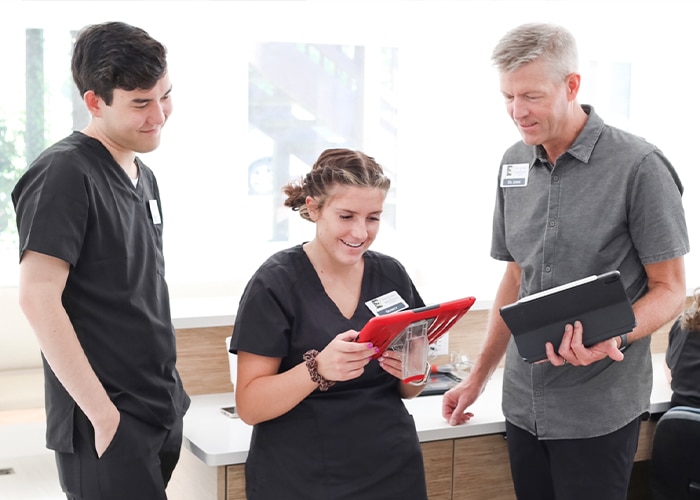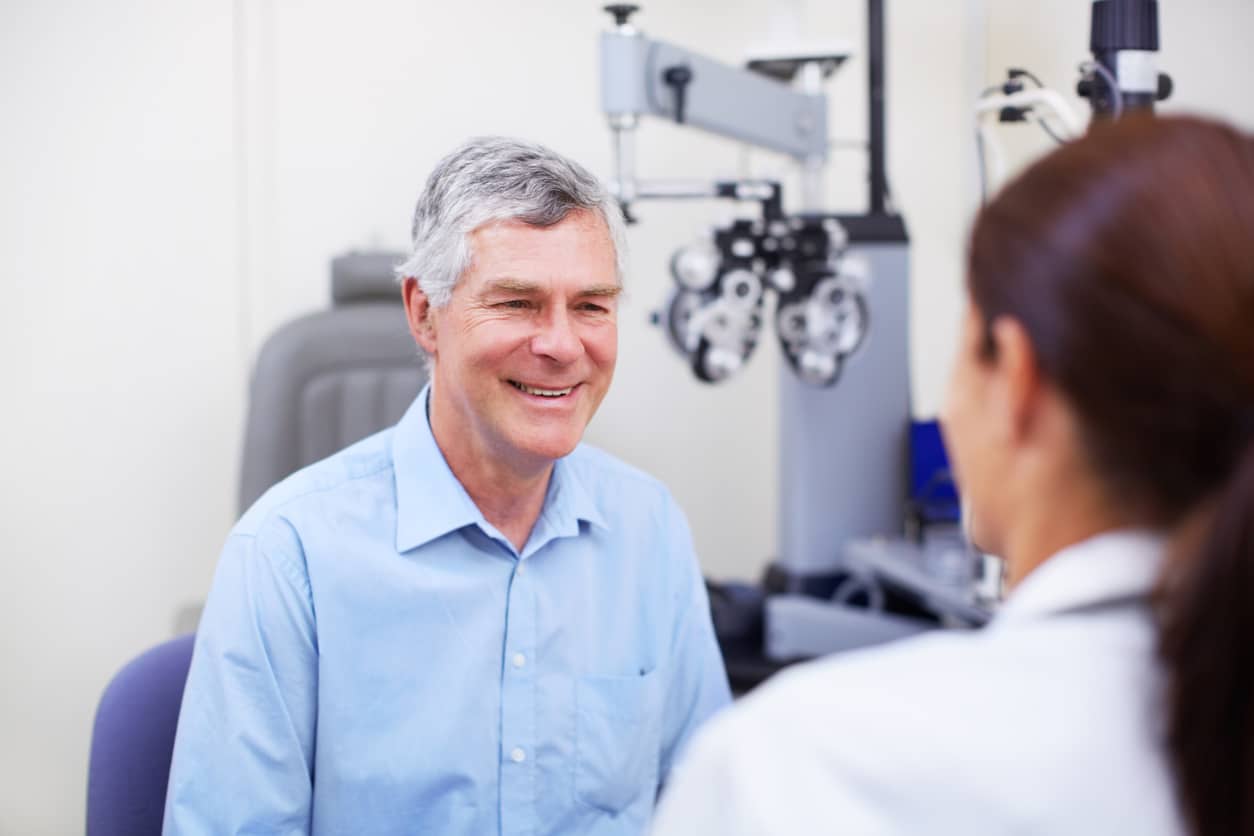Provo Trusts Optomap for Advanced Retinal Exams
Early detection of retinal problems is crucial as the retina plays a critical role in overall eye health and the detection of potential systemic health issues. With Optomap imaging, comprehensive retinal exams can now be performed without the need for pupil dilation, offering a quick, painless, and advanced assessment of the retinas to ensure ongoing eye health and disease management.
Optomap technology allows our doctors to conduct the most thorough eye examination possible by capturing more than 80% of your retina in one panoramic image. This advanced imaging technology offers an ultra-widefield view that is not achievable through traditional methods, providing a detailed historical record of retinal health to track any changes year over year.

What Is the Optomap Retinal Exam?
The Optomap Retinal Exam is a comprehensive way of examining the inner condition of one’s eyes and overall health. The image can detect and predict diseases—including eye disease, heart disease, hypertension, and some cancers. Optomap technology takes an instant 200° photographic scan of the eye, allowing us to visually show and explain what we observe through our microscopes and lenses. It often, but not always, eliminates the need to dilate your eyes, allowing you to return to normal activity right after your eye exam.
The Optomap technology was invented by Douglas Anderson, whose son suffered permanent eye damage—including blindness in one eye—as a result of a traditional eye exam. Striving to produce a better option for patients and doctors alike, Anderson introduced the Panoramic200 in 1999. This invention revolutionized eye care for patients, and the current instrument is the Optomap. We recommend that every person, regardless of age or current health status, receive yearly Optomap retinal exams.
Issues the Optomap Exam Can Detect
How Can Optomap Benefit My Eye Care?
With its ultra-wide field view of the retina, Optomap enables quick and easy detection of potential problems and, unlike traditional methods, allows for the comparison of images over time.
Optomapping offers comfort and convenience by eliminating the need for dilation and providing instantaneous results. It also serves as a valuable tool for monitoring and maintaining eye health, educating patients about their eye health, and assisting in detecting and managing various eye conditions.
Optomap helps eye care practitioners detect signs of retinal disease more efficiently than traditional exams, enabling successful treatments to be administered promptly, reducing risks to vision and overall health.

Provo’s Optomap Exam FAQs
Yes, it is safe for children and adults–even pregnant women, when approved by a healthcare provider. Non-invasive, low-intensity scanning lasers are used to create Optomap’s images. No adverse health effects have been reported in over 65 million scans.
Many vision problems begin in early childhood, so it is vital for children to receive quality comprehensive eye care. The Optomap is a safe and effective tool for providing diagnosis and treatment.
No, the exams are entirely comfortable, and the scan takes only a few seconds.
This decision will be made by Dr. Smith or Dr. Lewis at the end of your comprehensive eye exam. Most patients have an Optomap retinal exam yearly, but some conditions require more frequent scans. For example, patients with diabetes or hypertension affecting their retina may be scanned two to four times per year.
Request an Appointment
Optomap imaging allows patients of all ages to benefit from a comprehensive, efficient, and comfortable eye examination that helps promote optimal eye health. Optomap’s ability to assist in detecting various eye diseases reinforces its importance as a vital tool in preserving good eye health and overall well-being.
At the Eye Clinic & Aesthetics, we search for the latest technology to provide you, your family, and your friends with the best eye care possible. To schedule a comprehensive eye exam, including an Optomap Retinal Exam, for you and your family, call (801) 373-4550 or request an appointment using the link below.
